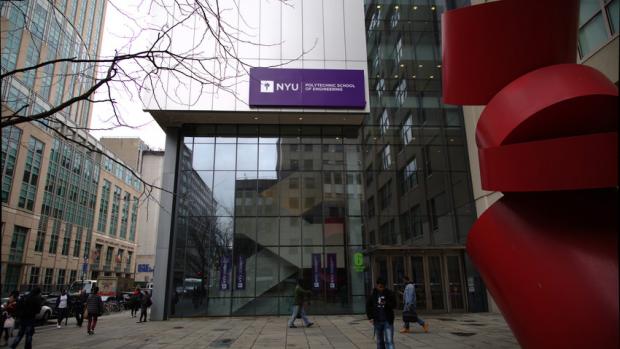Brookings Study Ranks NYU's Engineering School Among the Best in Aiding Students' Financial Success

A new study comparing the economic value of colleges by the Brookings Institution ranks what is now the New York University Polytechnic School of Engineering among the best in aiding the financial outcomes of its graduates.
The study is unusually comprehensive, tracking information on thousands of two- and four-year institutions, in contrast to most popular rankings, which cover only the most selective schools. The Brookings study employs a value-added approach to the subject, in order to determine why “graduates of some colleges enjoy much more economic success than their characteristics at time of admission would suggest.”
Brookings examined data from 2012-2013, before the Polytechnic Institute of NYU (NYU-Poly) officially merged with NYU to become its engineering school.
The study calculates the financial success of graduates in several ways, including examining the salaries of their baccalaureate graduates as tracked by PayScale; estimating the value of alumni skills on LinkedIn; and tracking student loan repayments. In each case, Brookings adjusted for factors such as schools having similar curricula and student population characteristics that affect dropout rates. In this way, it determined which schools added the most economic value for graduates.
NYU-Poly’s rankings among four-year colleges included
- #4 for alumni with the most valuable skills listed on LinkedIn;
- #10 for the highest value added with respect to loan repayment;
- #15 for the highest value added with respect to mid-career earnings. In this category, NYU-Poly graduates earned more than $34,000 above what would have been predicted by the Brookings model, with actual average earnings as reported by PayScale at $110,400.
According to Brookings, its study indicates “financial aid and other less precisely measured student support programs can dramatically boost graduation rates and thus future student success.” NYU-Poly’s financial aid substantially exceeds the average of all four-year institutions.
Faculty quality is another indicator of student success, according to the study authors; in one measure of this category, faculty salaries, NYU-Poly substantially surpasses the norm. (Surprisingly, Brookings found no correlation between the student-to-faculty ratio and students’ economic success.) The school also scored high on retention and eight-year graduation rates as well as another indicator of financial success: a high percentage of graduates in STEM fields (94 percent).
“Many studies have confirmed the financial success of our students—nearly half of whom come from economically less-advantaged families—but we are particularly gratified by this Brookings research because it offers meaningful insight beyond simple salary calculations,” said NYU School of Engineering President and Dean Katepalli R. Sreenivasan. “It will guide academics and administrators to meaningful improvements while aiding students and parents in an easily measured area: financial outcomes.”
National statistics indicate that typical bachelor’s degree holders earn $580,000 more over their lifetimes than those with high school diplomas.
Added the Brookings authors: “The findings here relating various quality measures to economic success are consistent with a growing body of evidence showing that policies and programs offered by colleges have important effects on the economic lives of students and surrounding communities.”
The full study is available here.




